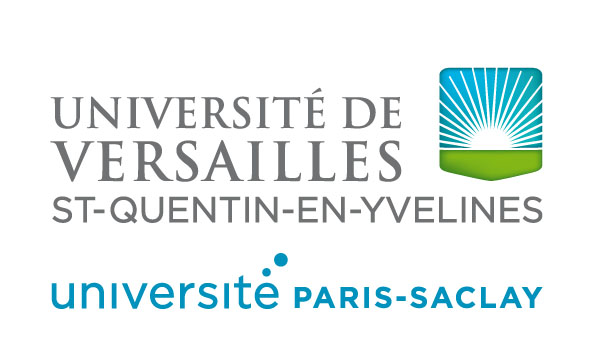
Welcome to my web page
I am currently professor emeritus at UVSQ/Université Paris-Saclay. Then, I no longer teach courses, I no longer supervise doctoral students and I no longer have any functional responsibility! An excellent opportunity to continue to be interested in various scientific themes, particularly those requiring interdisciplinary approaches. In the series of synthesis books that I have coordinated (with other colleagues), another book is in preparation on the role of computing and its impact on the acceleration of scientific discoveries or on the scientific methods as practiced in different disciplines.
Recent Books

 Emeritus Full Professor at UVSQ / Univ. Paris-Saclay / Data & Algorithms Lab
Emeritus Full Professor at UVSQ / Univ. Paris-Saclay / Data & Algorithms Lab
 Former Deputy Director of CNRS / Computer Science Institute (2009-2021)
Former Deputy Director of CNRS / Computer Science Institute (2009-2021)
 Academic distinctions
Academic distinctions
– Palmes académiques (2022)
– Médaille d’honneur du CNRS (2022)
-Hommage communauté BDA (2023)
The Computing Revealed — a synthesis book on the emergence of computing and its impact on scientific research and technologies
In the beginning was the stone, in Latin calculus, used, in addition to fingers, for the first human counting. Then came the Chinese abacus, in the 12th century, followed in 1642 by Pascal’s machine, a mechanical arithmetic calculator, precursor of many others designed during the industrial revolution, before giving way at the beginning of the 20th century to mechanographic machines. With the development of electronics and massive digital storage, the modern computer, inspired by the Turing machine (1936), crowned this evolution with staggering computing capacities inaugurating the era of the digital society. The future will be disrupted by machines based on emerging technologies such as nanotubes, DNA, neural networks or quantum technology, leading to applications that are as yet unimagined. This book explores the fascinating history of computing and computers, through accessible articles tracing their evolution and evoking the personalities who have shaped or accompanied this evolution. All scientific disciplines are questioned on the knowledge and emblematic results that could not have been achieved without computer science. Crucial issues such as energy consumption, changing professions, protection of privacy and security are also addressed. (CNRS Editions, January 2025)
 Interdisciplinarity – a trip over scientific disciplines
Interdisciplinarity – a trip over scientific disciplines
The interdisciplinary approach is the art of articulating analytical tools, approaches and modes of interpretation from different fields in order to develop new perspectives and original questions. This book offers a wide range of examples dealing with various questions: How could robotics help in the management of our water resources? How could certain natural minerals be used to treat radioactive waste? How can medical imaging research be useful to archaeologists? How can the study of DNA give rise to nanorobots? Can the study of sediments provide information on the techniques of the first migratory hominids? Can ultrasound cure cancer? What are the mechanisms of the incredible resistance of tardigrades? Can reptiles help understand sleep mechanics? Can urban violence be modeled and predicted? All these questions mobilize theories and methodological tools from different disciplines. (CNRS Éditions, March 2022)
 Towards the Cyber-World – Human-Machine Interaction
Towards the Cyber-World – Human-Machine Interaction
Interaction devices establish bridges between the real world with its tangible objects and the virtual world with its abstract representations. How to simplify interactions between objects and humans? How can we make them more intuitive and more ergonomic? How can we measure their acceptability in society? What new forms for immersion in the cyber world? For what objectives and what uses? These new advances do not fail to raise crucial ethical questions: capture of personal data, facial recognition, analysis of emotions, mental control and predictions of human behavior are likely to disturb us and raise fears of machine control over humans. (CNRS Editions March, 2021)
 The Big Data Revealed – A synthesis book on how multiple actors see big data.
The Big Data Revealed – A synthesis book on how multiple actors see big data.
What challenges does big data represent ? How to store large volumes of data? How to process them? How to analyze them and extract knowledge? How to evaluate the quality of the data and the transparency of the algorithms that process it? What are the expected scientific or economic benefits? What are the effects induced by the accumulation of data? What about their opening to the market and their monetization? A large panel of experts presents, through 150 summary articles, the state of the art on these questions so that citizens can understand the issues and participate in an informed manner in the social debate that has begun. (CNRS Editions, March 2017)




